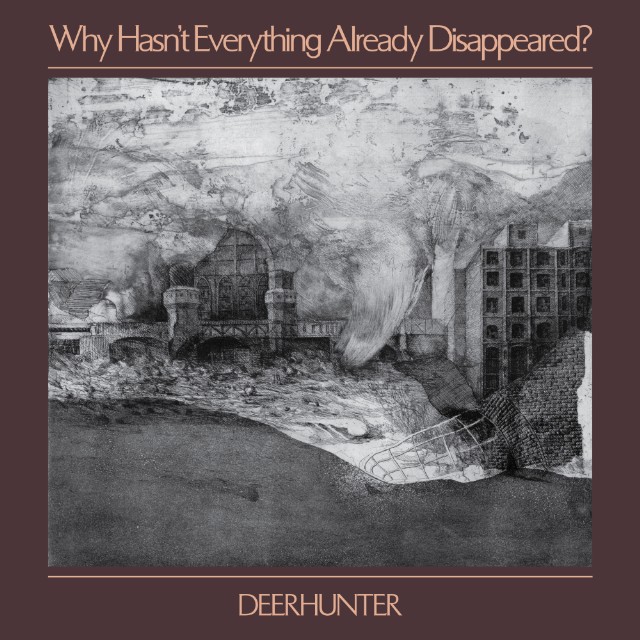
New Music: Deerhunter
By Troy Hasselman, January 21 2019 —
Deerhunter’s music is typically characterized by its erratic nature. Throughout their career, the Atlanta-based outfit has combined elements of post-punk, noise, shoegaze, ambient and psychedelia to create a sound that has consistently evolved while remaining tethered by the uncompromising nature of frontman Bradford Cox. The band’s introverted music operates on a massive scale through the endless evolutions and left turns of their decade-plus career.
On their eighth full-length album, Why Hasn’t Everything Already Disappeared?, Deerhunter makes another tonal change by incorporating baroque- and tropicalia-inspired elements. While the atmosphere of paranoia and anxiety that has characterized Deerhunter’s previous work remains on this album, there is a lushness to its songwriting that goes beyond what was only hinted at on past releases such as 2010’s Halcyon Digest and 2015’s Fading Frontier. Opener “Death in Midsummer,” is built around a baroque harpsichord riff that wouldn’t sound out of place on classically tripped out releases like The Zombies’s Odessey and Oracle.
Lyrically and thematically, the album takes an outward focus by filtering the anxieties that inform Deerhunter’s material through the scope of the world at large. Album highlight “No One’s Sleeping” takes inspiration from the June 2016 assassination of British member of parliament Jo Cox days before the Brexit vote. The track explores anxieties surrounding the rise of right-wing authoritarianism and the fear and violence which stems from it. Climate change also heavily informs the imagery of the album with lyrics such as, “Orange clouds laid out for a toxic view,” illustrating environmental apocalypse. The more thematic outward approach the album takes differentiates it from the more personal nature of most of Cox’s previous lyrics.

Bradford Cox is in nearly full control on Why Hasn’t Everything Already Disappeared?, as evident in the unified nature of the songs and how they reflect his influences. While added elements of the project can occasionally fall flat, with much of the album failing to pack the visceral punch of albums like 2008’s Microcastle or the intricate songwriting of Halcyon Digest, songs such as “What Happens to People” stand as strong pieces of songwriting that could stand against Deerhunter’s best work.
Though Deerhunter has previously been known for their introversion and experimentation, Why Hasn’t Everything Already Disappeared? adds more sedate, lush elements to their sound while taking an outward look lyrically. The relatively relaxed sound of the album could appear to be a regression at first, but there is a deep level of paranoia and experimentation lurking behind the surface to show that Deerhunter isn’t afraid to continue to evolve and reinvent themselves.
